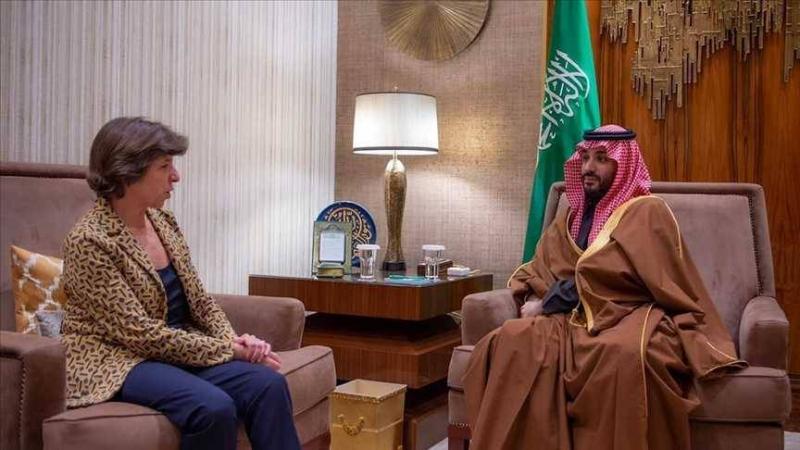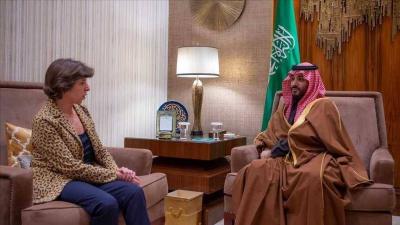French Foreign Minister Catherine Colonna, who is on her first visit to the Gulf region including Saudi Arabia and the UAE, confirmed that the area "suffers from chronic and escalating instability." She noted that strengthening relations between France on one side and Saudi Arabia and Abu Dhabi on the other can be seen as a way to respond to this reality. In an interview with "Asharq Al-Awsat," Colonna stated that the Lebanese are "victims of a bankrupt system," and that Paris's primary goal is to continue assisting them and supporting institutions that ensure Lebanon's sovereignty and independence. She reiterated France's call for the political class to facilitate the election of a president and to enable the formation of a government that executes reforms as a first step towards recovery.
She remarked, "Unfortunately, Lebanon, a country loved by many French people, has been suffering from a presidential vacuum since October 31, which has plunged it into an unprecedented crisis. This crisis manifests in multiple ways; the financial system has collapsed, the economy is suffering immensely, societal bonds are disintegrating, and the political situation has reached a dead end."
Colonna added, "Our primary goal is to continue supporting the population, since the leaders do not suffer the consequences, it is actually the Lebanese people who are suffering. Since the port explosion on August 4, 2020, we have mobilized, spurred on by the President, resources that meet the challenges, gathering exceptional assistance amounting to 100 million euros."
She continued, "We provided this following the support conference held in July 2021 aimed at health, food security, and education, and we made commitments with our partners in the Gulf region, especially Saudi Arabia, which materialized in the establishment of a joint humanitarian mechanism at the beginning of 2022. This allowed funding for four projects directly benefiting the Lebanese people, amounting to 28 million euros, of which 12.5 million euros were allocated to support Tripoli Governmental Hospital."
Colonna pointed out that "Lebanese are suffering from this failed system, and the Syrian and Palestinian refugees also deserve support that allows them to live in dignity. France has consistently adhered to the principle of supporting institutions that ensure Lebanon's sovereignty and independence. It has become urgent for Lebanese officials to cease hindering reforms and preventing the emergence of a solution that paves the way for presidential elections. The crisis has already consumed a long time, Lebanon is depleting its talents, its economy is exhausted, and the country is increasingly susceptible to the repercussions of regional and global turmoil."
She emphasized that "the solution simply lies in electing a consensus president and appointing a government that works for the country's interest and implements reforms that enable the International Monetary Fund to intervene. France spares no effort in this regard; I had reminded during my visit to Lebanon last October that we are coordinating closely with the United States, the European Union, and our key partners in the region to make progress on this file."
Colonna clarified that France "remains firmly opposed to normalizing relations with the 'Assad regime' even though many friendly countries have done so. Is it possible for the situation to continue as it is? What do you actually want from the Syrian government?" She added, "The 'Syrian regime' must normalize its relations with the international community and its own people, which it has systematically sought to destroy. I would also add that the Syrian regime and its allies are increasingly engaging in drug trafficking, which is a significant source of instability in the region, and therefore a political solution must be found because it is important for our shared security."




